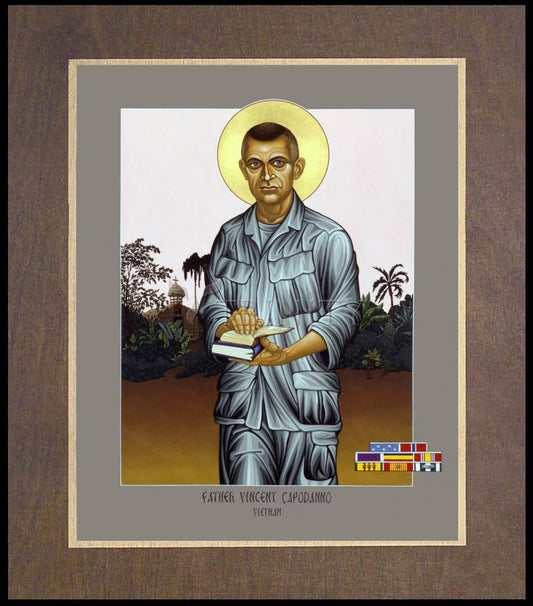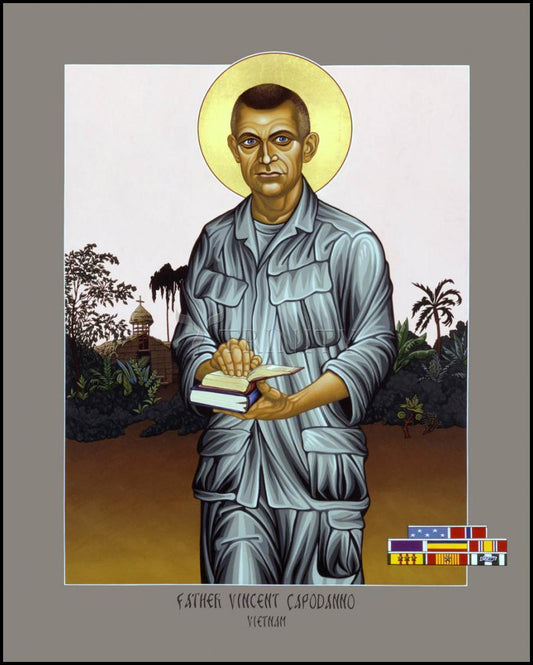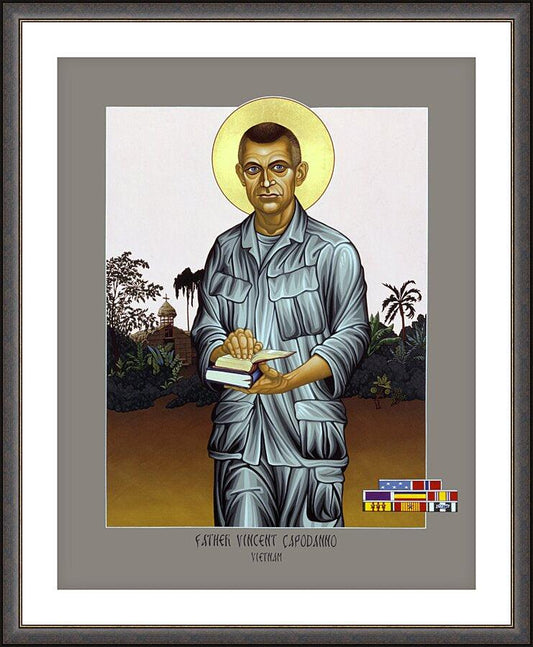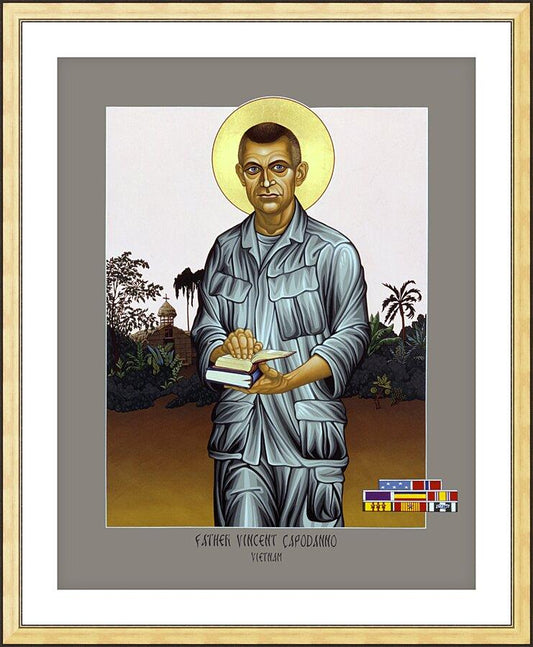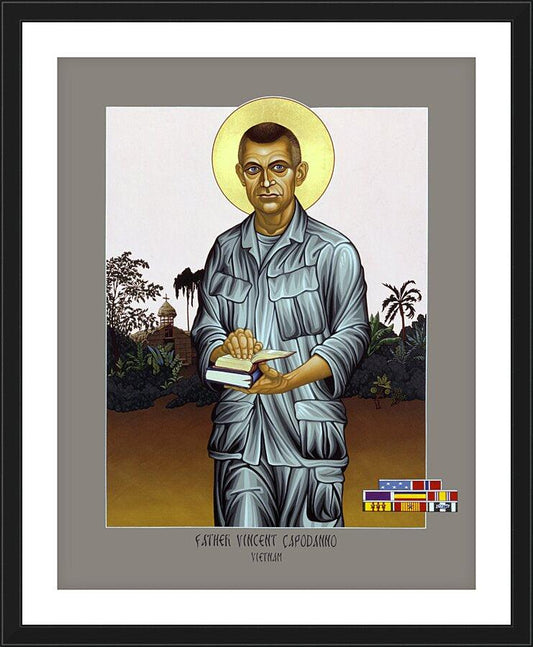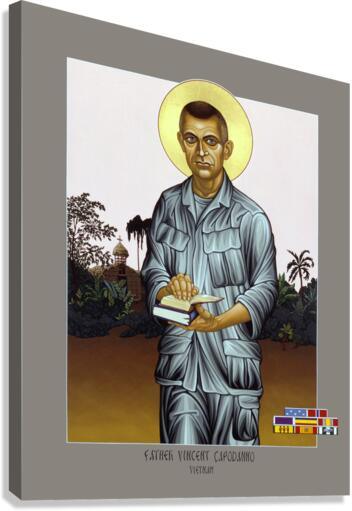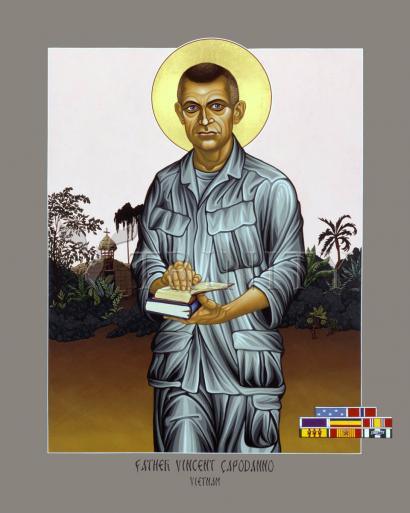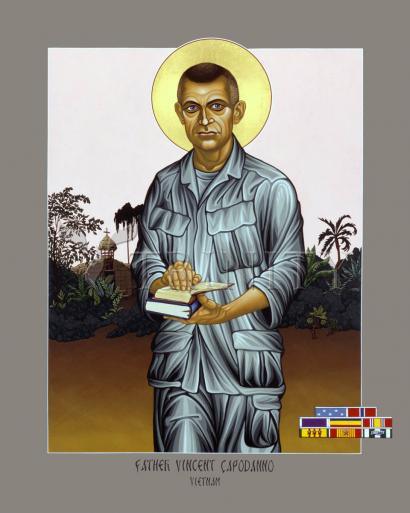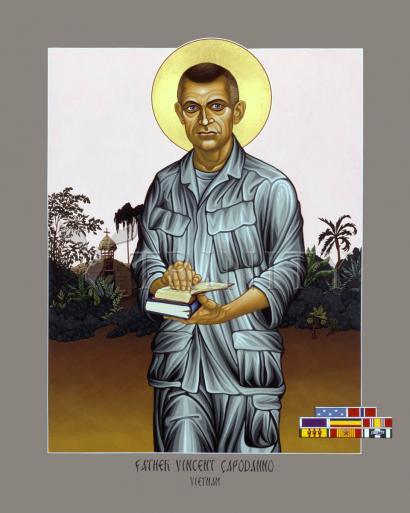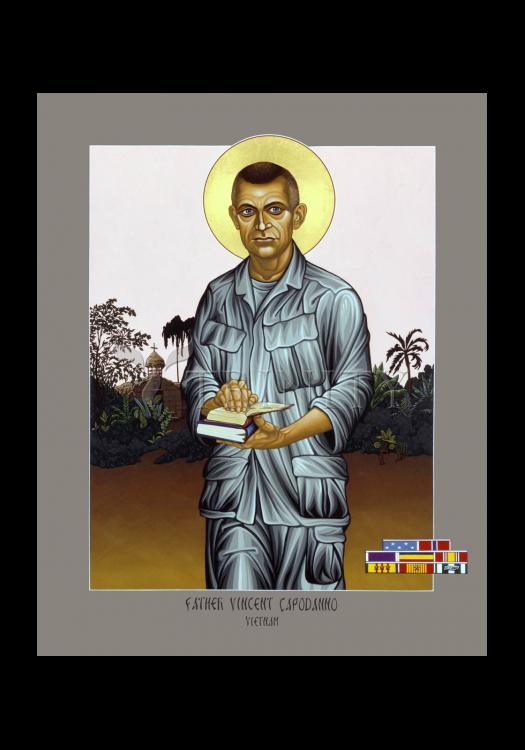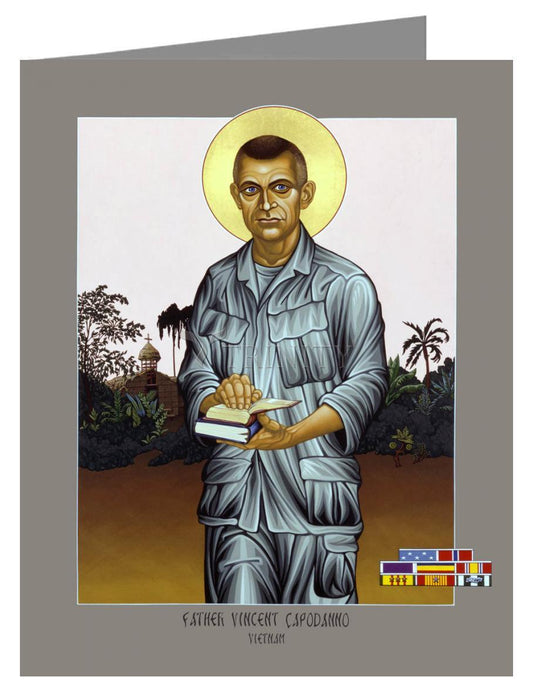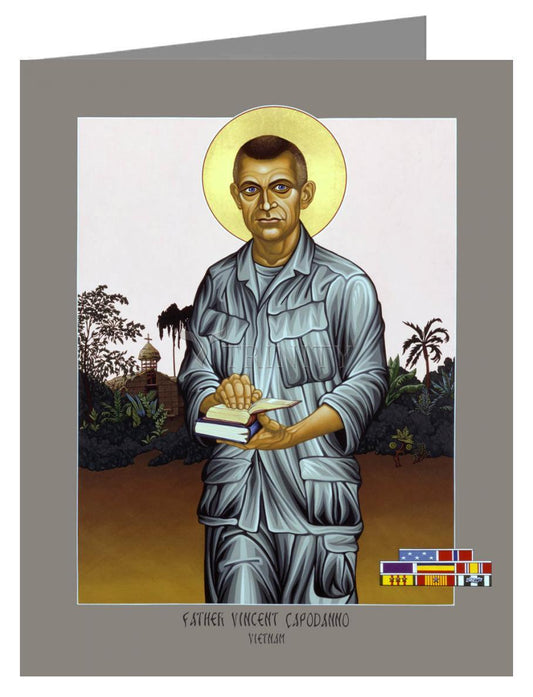Father Vincent Capodanno was a man whose life as a Navy Officer and Chaplain epitomized the ideals of duty, honor, and country that are the bedrock of military service. Just as important, he was also a soldier priest in another Army -- that of our Lord, Jesus Christ. In this role, he preached the "Good News" of God's love in places where many would not think Our Lord was present -- the battlefields of the Vietnam War.
He was a soldier's chaplain, the type of chaplain who went where he was needed most -- with the young men sent to serve in a faraway combat zone. He went with young men who faced the uncertainties of life and death each day. He went where he was the role model of a man with a mission -- to bring the Gospel, in word and deed, to those who needed to know that they were not alone in the valley of death.
Father Capodanno was a Maryknoll priest who served in Taiwan before enlisting with the Navy. As many another young man of that time he went where sent -- ultimately to the Third Battalion, Fifth Marine Regiment. Assigned to the Marines, he undoubtedly greeted them with the Marine motto "Semper Fi", Always Faithful, and to those with whom he served, that motto represented his life.
During his sixteen months in Vietnam, he served in an area that saw some of the fiercest fighting of the war. He chose to be in the field where he could truly do God's work, not in some safe haven. He went in harm's way because that's where those who needed him most were. He faced the terrible heat, the grinding exhaustion of long patrols, the constant knowledge that death could come at any moment and, in the end, the violence of combat that would take his life. He died doing his duty as priest, chaplain, and naval officer. He died, as he lived, the personification of the love of God for his people. He died as a Maryknoll priest.
In 1969, Lieutenant Vincent Capodanno became only the second chaplain in United States history to be awarded the Medal of Honor. His citation noted that his actions represented "conspicuous gallantry and intrepidity at the risk of his life above and beyond the call of duty. THE MEDAL, as military people call it, represents for those of us who have served, the potential that any of us might be called on, in some distant place, to demonstrate that "no greater love hath a man than this, that he lay down his life for his friends." Lieutenant Capodanno's actions, that September day in 1967, met that challenge and enshrined him forever in the annals of America's heroes.
His life, however, was more than the actions of his last day. His life is a testament to the good that one person can do. We'll never know how many young men died with his words of comfort in their ears. We'll never know how many others have used his life as an example for good works. We do know that the "grunt padre" lived his life as Jesus did, in service to those who needed him most. We also know that chapels across the U.S. Navy have been dedicated to him and that his life's story is held up as an example of what a military chaplain should be. Father Capodanno's life as a Maryknoll priest ended in Vietnam but his example as a Maryknoll missioner who goes where he is needed, regardless of personal cost, lives on.
"Excerpts from Defenders of the Faith, Inc: Modern Day Saints: Father Vincent R. Capodanno, MM



